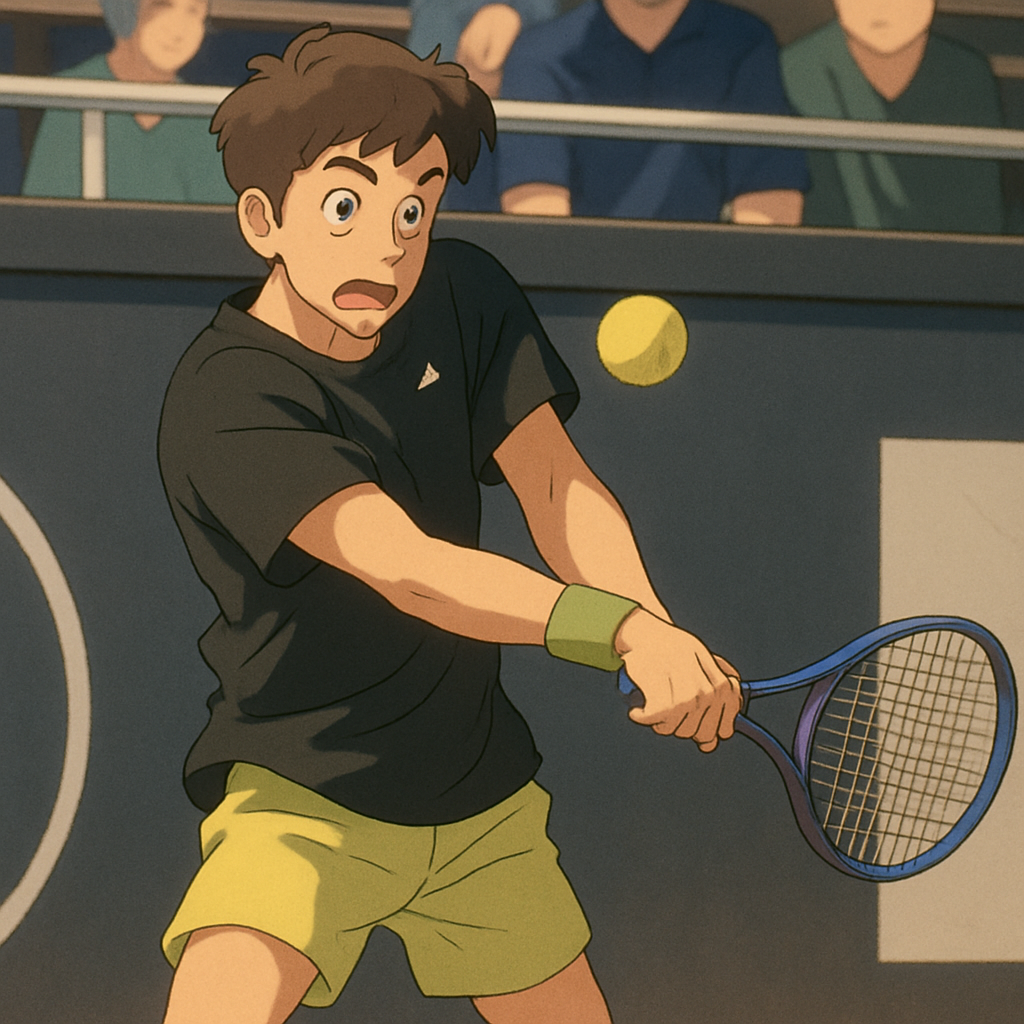ROME — Rising Italian tennis star Luca Nardi found himself in an unexpected controversy during the Italian Open after receiving a hefty penalty for an unusual violation: spending too much time in the bathroom. The 20-year-old, ranked No. 75 in the world, was fined $1,000 for exceeding the allotted toilet break time during his first-round match against France’s Alexandre Müller.
The incident occurred during the second set of Nardi’s match, which he ultimately lost 6-4, 6-3. After dropping serve in the fifth game, Nardi requested a bathroom break, a common practice in tennis. However, he exceeded the permitted time limit, prompting the chair umpire to issue a code violation for delay of game. The ATP’s rules strictly enforce a "reasonable time" standard for bathroom breaks, typically around three minutes for men’s matches.
The Rulebook Crackdown
Tennis authorities have been increasingly vigilant about enforcing time violations, particularly after high-profile incidents involving extended bathroom breaks. The ATP and WTA have tightened regulations to prevent gamesmanship, including:
- A strict three-minute limit for bathroom breaks (five minutes if a change of attire is required).
- Only one break per match unless under exceptional circumstances.
- Automatic penalties for exceeding the time limit, including fines and potential point deductions.
Nardi’s fine was part of a broader ATP crackdown on delays, which has seen several players penalized in recent months. Tournament referee Gerry Armstrong defended the decision, stating, "The rules are clear, and consistency in enforcement is crucial to maintaining fairness in the sport."
Nardi’s Reaction and Fan Backlash
Nardi, who was making his main-draw debut at the Italian Open, expressed frustration after the match. "I didn’t realize I took too long—it wasn’t intentional," he told reporters. "I was just trying to regroup. The fine feels harsh for a first offense."
The penalty sparked debate among fans and analysts. Some argued that the punishment was excessive, while others supported strict enforcement to prevent abuse of the rules. Tennis commentator Ben Rothenberg noted on social media, "This is the downside of the ‘shot clock’ era—every second counts, even in the bathroom."
Historical Precedents
Nardi isn’t the first player to face consequences for extended breaks. In 2021, Stefanos Tsitsipas was criticized for lengthy bathroom breaks during the US Open, prompting Andy Murray to sarcastically remark, "He’s gone for seven, eight minutes. Must be a serious issue." The ATP later clarified its rules to prevent such delays.
Similarly, in 2022, Alexander Zverev received a fine for exceeding the time limit during a match in Acapulco. The German later joked, "Maybe I need to start training my bladder like my backhand."
The Bigger Picture: Time Management in Tennis
The incident highlights the ongoing tension between player needs and strict time enforcement. Key factors include:
- Physical demands: Players often use breaks to recover or reset mentally.
- Gamesmanship risks: Some exploit breaks to disrupt opponents’ momentum.
- Fan experience: Excessive delays can disrupt match flow and viewer engagement.
ATP spokesperson Mark Young reiterated the organization’s stance: "While we understand players’ needs, maintaining pace of play is essential for the integrity of the sport."
What’s Next for Nardi?
Despite the controversy, Nardi remains focused on his season. The young Italian, who stunned Novak Djokovic earlier this year in Indian Wells, is expected to appeal the fine. His coach, Gabriel Trujillo-Soler, defended him, saying, "Luca is a disciplined player. This was an honest mistake, not gamesmanship."
The ATP has yet to confirm whether the penalty will stand, but the incident serves as a reminder to players: in modern tennis, even bathroom breaks are timed.
As the sport continues to refine its rules, Nardi’s case may prompt further discussions about balancing fairness with practicality. For now, the message is clear—when nature calls, the clock is ticking.

